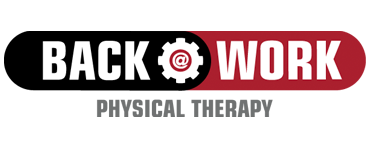Have you ever been laying down and felt a sudden, sharp pain in your muscle? Imagine one minute you’re relaxing and the next you’re wincing in pain and looking for relief or you’re in the middle of a workout and you begin to feel a tight sensation in a muscle group. If this is you, then you may have experienced a muscle cramp. Muscle cramps can catch you off guard at any moment, regardless of one’s athletic abilities and can be due to many underlying factors, including physical exertion. There are some easy ways to alleviate muscle cramps and reduce the likelihood of getting them. Learn about what a muscle cramp is, ways to alleviate it, and the role physical therapy plays in helping to alleviate muscle cramps.
What Constitutes as a Muscle Cramp?
A muscle cramp can be defined as a sudden or involuntary spasm that can occur in any muscle throughout the body. A muscle cramp provides short but substantial pain within the muscle. This kind of pain can occur for multiple reasons, from overusing the muscle to dehydration. Anyone may be susceptible to experiencing a muscle cramp, regardless of the condition, athletic ability, weight, or age.
What Nutrients Play a Role in Muscle Cramps?
Nutrients can be helpful when seeking to alleviate muscle cramps. You can reduce the likelihood of muscle cramps by maintaining adequate hydration and a balanced diet. This can be done by avoiding sugary drinks and snacks and other high fat foods, and incorporating foods like bananas, sweet potatoes, and avocados.
How Can I Alleviate Muscle Cramps?
Experiencing a cramp can be intense and painful, despite the pain being short-term in most cases. Fortunately, there are a variety of techniques that you can utilize to relief yourself from muscle cramps and subsequently alleviate the pain stemming from them. Here are some ways to alleviate muscle cramps:
Stretch
When experiencing muscle cramps, one of the things that you can do to alleviate the pain is to stretch your muscles. Stretching consistently can help to not only stop the pain from progressing but also ease the existing tension. Additionally, because stretching is known to help with flexibility, doing so can also reduce the amount of muscle cramp that you may be experiencing. Incorporating stretching into your everyday routine can be immensely helpful, especially as you take on daily tasks. If you find that you are dealing with muscle cramps in the middle of the night or as you get ready to settle in to sleep for the night, you can also stretch before bed.
Stay Hydrated
Hydration is a key factor when seeking to alleviate and prevent muscle cramps. Even though the causes of muscle cramps may vary, one of the most common causes of muscle cramps can typically stem from being dehydrated. Without the proper nutrients and adequate hydration, your body may become susceptible to pain and tightness within the muscle. We recommend that you eat foods and drink beverages that will give your body the electrolytes it needs to function properly without worry of cramping. Try to make sure that you’re getting the recommended amount of water per day, and try to reduce caffeinated, sugary, and alcoholic beverages.
Perform a Gentle Massage
Another way to alleviate muscle cramps is by performing a gentle massage. Massages can help deal with cramps by increasing blood flow in the affected area and allow the muscle to relax. Additionally, stimulating the muscle can help reduce stiffness and tension. Conducting a gentle massage on the cramped area can help to relieve pain and restore functionality.
Utilize At-Home Remedies
Another highly effective strategy to alleviate and prevent muscle cramps is to utilize at-home remedies like hot and cold compressors and over-the-counter medications as needed and under the guidance of a qualified healthcare professional. Applying a heating pad to the muscle can help to reduce any stiffness in the joint or muscle and reduce pain. Additionally, OTC medication like Ibuprofen can be effective, especially when dealing with symptoms that are more associated with stronger, painful cramps. These two remedies provide you with another practical way to manage your cramps from the comfort of your own home as long as they are used in moderation and under the guidance of a qualified healthcare professional.
How Can Physical Therapy Help Alleviate My Muscle Cramps?
If your pain has not lessened while tending to your muscle cramps, physical therapy can be helpful for you. PT provides immense value to alleviating pain, especially pain caused by muscle cramps. A physical therapist can provide you with the insight needed to navigate the source of your cramp-induced pain. After the evaluation, your physical therapist will work with you to curate a treatment plan personalized to your unique needs and conditions to guide you on your way to recovery. While addressing the existing pain, PTs can also provide you with techniques and information that will help to reduce the chances of experiencing muscles cramps going forward. A physical therapist is equipped to support you as you take the right steps towards healing and recovery.
Alleviate Muscle Cramps with Physical Therapy
If you have experienced muscle cramps, we can help. We have a team of experienced professionals who are committed to your healing. We provide you with the information, techniques, and resources necessary to address your injury and reduce the risk of future injury. Schedule an appointment with us today and let us assist you on your journey to recovery and wellness.
- “Muscle Cramps.” Medlineplus.gov, 9 June 2020, medlineplus.gov/musclecramps.html.
- Higuera, Valencia. “What Causes Muscle Cramps?” Healthline, 18 July 2012, www.healthline.com/health/muscle-cramps#prevention.
- “Muscle Spasms and Cramps: What Causes Them?” Cleveland Clinic, 20 Oct. 2023, my.clevelandclinic.org/health/diseases/muscle-spasms-muscle-cramps.
- Edith Cowan University . “Muscle Cramp? Drink Electrolytes, Not Water, Study Shows.” ScienceDaily, 21 Mar. 2021, www.sciencedaily.com/releases/2021/03/210318101536.htm.
- Biron, Alexa. John Hopkins Medicine. “Ice Packs vs. Warm Compresses for Pain.” Www.hopkinsmedicine.org, 2022, www.hopkinsmedicine.org/health/treatment-tests-and-therapies/ice-packs-vs-warm-compresses-for-pain.
- Olopaade, Jennie. “Muscle Relaxers: 17 Prescription Medications.” Healthline, 22 June 2017, www.healthline.com/health/muscle-relaxers#_noHeaderPrefixedContent.

